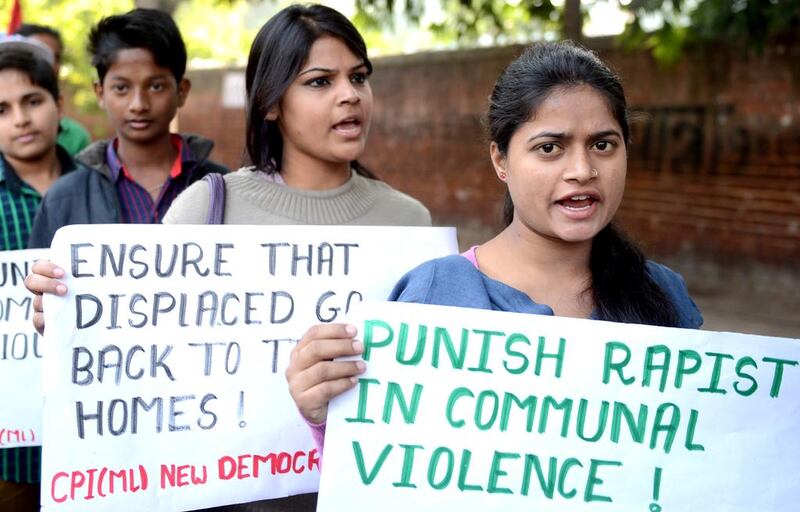Last April, in the southern Indian state of Kerala, a mother returned home to find her 30-year-old daughter lying in a pool of blood. The woman had been raped and murdered and her body had been savagely mutilated. This ghastly act bore a chilling similarity to the New Delhi rape case that grabbed worldwide attention in December 2012.
This time around, the Indian press has remained relatively quiet about what has been dubbed the Jisha case by some and the international media has not picked up the story. More appallingly, the culprits remain at large and the criminal investigation has shown few signs of a breakthrough.
Unlike the Delhi victim, who belonged to the middle class, Jisha was very poor and belonged to the lowest caste, the Dalits. She was a law student who was working hard to break through the socio-economic boundaries of a sclerotic caste system.
If it were not for the noise made by Jisha's classmates and teachers at her college this gruesome incident might have remained unseen. The rape and murder happened on April 28 and, at the time, Kerala was in the throes of electioneering.
The case, ephemerally, galvanised politics as the elections came and went in May. Now, with Pinarayi Vijayan, Kerala’s new chief minister, in place, a team has been assembled to investigate the murder.
The head of the police team has warned that there is no “magic” formula to bring the perpetrators to justice. Sadly, there is always the fear in such cases that the country is so entrenched in a culture of entitlement that it makes those at the lower ends of its socio-economic order invisible.
Kerala ought to be a lodestar for the rest of India. According to the 2011 census, Kerala is the most literate state with a 93.91 per cent literacy rate, which is significantly higher than India's average of 74.04 per cent. But in Kerala, this high literacy rate is coupled with attitudes that are neither liberal nor progressive, especially when dealing with caste and gender-based issues.
Jisha's father had abandoned her and the rest of the family when she was a child, leaving her family to deal with the perceived disgrace of being devoid of a male head of the household. Added to this, they were Dalits.
Before the murder, Jisha and her mother had been threatened and harassed by incessant knocks on the door of their one room house and torches being shone through their windows, and they had reported being stalked.
Their attempts at making police complaints were unsuccessful because the system saw them as irrelevant. Rightly or wrongly, Indian police have a reputation for their deference to swagger and their indifference to the marginalised.
According to the National Crime Records Bureau, 93 women are raped in India every day. This number in itself is shameful. India’s responses to its rape cases, especially those that happen in its backwaters is abhorrent.
The response to each case that informs this statistic must be reformed if India is to be redeemed as a land safe for women – irrespective of their location in a discriminatory socio-economic spectrum. There can be no cover-ups here if meaningful change is to come.
Priya Virmani is a commentator on politics and economics based in London





